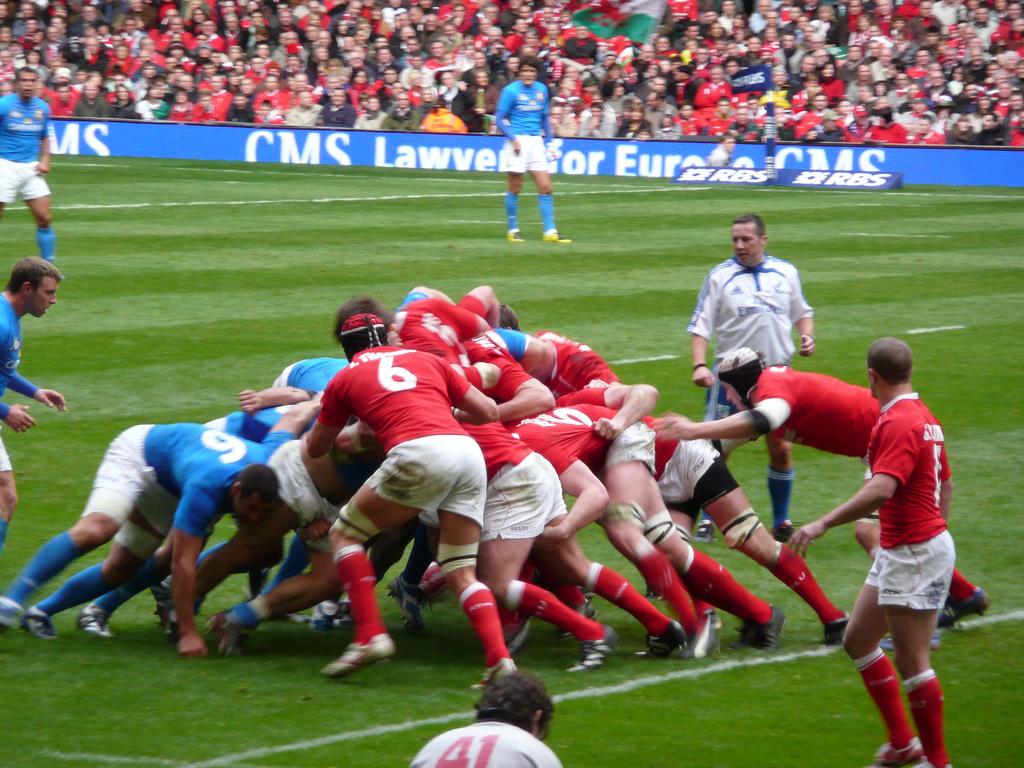Could new rules lead rugby to become a minority sport?
French rugby is ablaze: it’s lit up with superstar Olympic gold medal-winning players like Antoine Dupont; houses a raucous national stadium feared by travelling countries; and has two fiercely competitive home leagues with the top league home to the winners of the European Champions Cup for the last four years and the second league recently boasting a new lucrative broadcasting deal.
Across the channel, English rugby is in utter disarray. If the liquidation and consequent expulsion of former premiership club London Welsh from the championship didn’t make that clear enough, then the six time English Champions and two time European champions London Wasps’ fall from grace to the bottom of the playing pyramid in tier ten, after going bust, was a sign. Sadly, this was not the call to action for the Rugby Football Union some thought it was going to be, the collapse of Worcester Warriors and London Irish have since occurred.
A recent review commissioned by the RFU has labelled rugby as a “declining minority sport”
As dire as the situation is at rugby’s top flight, decreased numbers of players in schools and at the grassroots level also come as a corollary to this crisis that English rugby is facing. The problem is so bad in schools that a recent review commissioned by the RFU has labelled rugby as a “declining minority sport”.
This has, in part, been attributed to the risk associated with what can be a sometimes brutal contact sport, but if this were the case then the frequent rule changes introduced over the past years to reduce danger to players and penalise more dangerous play should have resulted in an increase in players. Yet participation is still low, so it would appear that risk aversion is not the principal reason for reduced numbers.
The report also points to the stigma surrounding rugby; that it is predominantly a game for ‘posh white boys’ which obviously serves to isolate the majority of would-be players and acts as the first barrier to entry for young eager new players who don’t believe the sport is for them.
This is a difficult stereotype to weed out of the public consciousness because, without the cultural significance rugby plays in other countries like New Zealand or South Africa, it’s an uphill battle to create a love for a complicated sport when there are far more accessible options like that of football. As long as there are people believing that this is not a sport for them then there will always be a struggle to attract and nurture new burgeoning talent.
If people don’t want to play, whether because they see the abysmal failings of top flight teams, worries over safety, or not seeing themselves reflected in rugby’s vast landscape, then the RFU have a duty to ease concerns and make rugby more visible and desirable to all
The RFU need to be more proactive in addressing these issues and it starts at the grassroots level. If people don’t want to play, whether because they see the abysmal failings of top flight teams, worries over safety, or not seeing themselves reflected in rugby’s vast landscape, then the RFU have a duty to ease concerns and make rugby more visible and desirable to all.
Since England’s early exit from their own World Cup in 2019, a World Cup that brought with it the promise to bolster the game in England by showcasing our rugby and our talent to the nation, it seems that the RFU still have not been able to pick up the pieces and recover any sort mass appeal for the sport.
After this embarrassing performance on home turf though, England have since reached a semi-final and a final at the World Cup. But if rugby continues on its way to becoming a ‘minority sport’ and the RFU continues to react lethargically and with such indifference then these successes will not be able to be recreated.

Comments